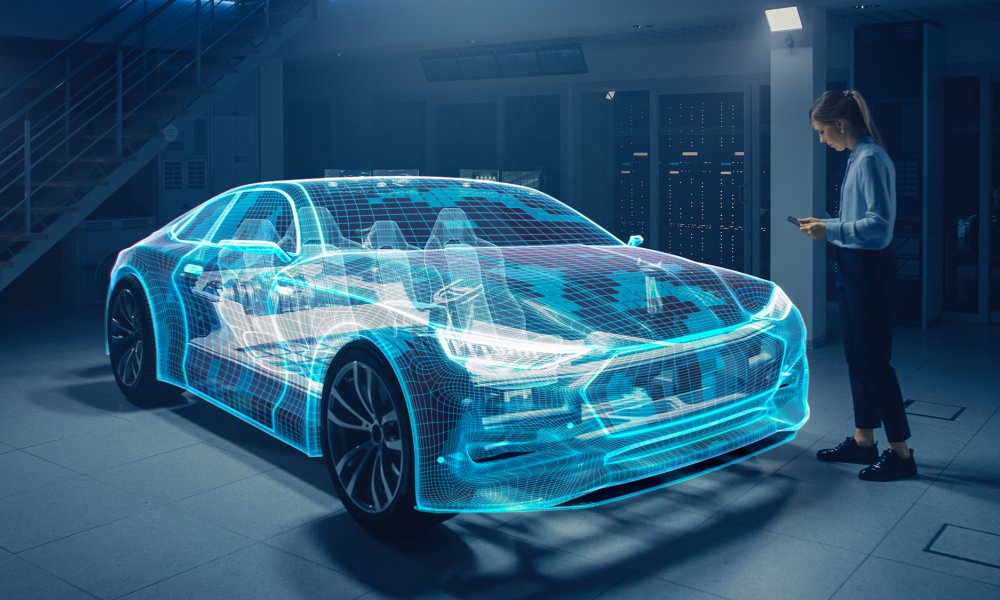Cleaner Cars’ Commitment to Fuel Cell Electric Vehicle (FCEV) Technology
Cleaner Cars, a leading innovator in sustainable transportation, is deeply committed to advancing Fuel Cell Electric Vehicle (FCEV) technology. We believe FCEVs offer a compelling solution to the challenges of decarbonizing the transportation sector, providing a zero-tailpipe emission alternative without the range anxiety and charging limitations often associated with battery electric vehicles (BEVs).
Revolutionizing Hydrogen Storage: A Safer, More Efficient System
One of our key breakthroughs lies in the area of hydrogen storage. We’ve developed a new, lightweight and incredibly safe hydrogen storage tank that significantly increases the driving range of our FCEVs. This advanced tank utilizes a composite material that’s both robust and lightweight, allowing us to pack more hydrogen onboard without compromising vehicle performance or safety. This leap in storage technology is pivotal to the wider adoption of FCEVs.
Enhanced Fuel Cell Stack Efficiency: Maximizing Range and Performance
Beyond storage, we’ve also made significant advancements in fuel cell stack efficiency. Our engineers have meticulously optimized the design and materials of the fuel cell stack, resulting in improved energy conversion and a substantial increase in driving range. This increased efficiency translates to fewer refueling stops and a more practical driving experience, directly addressing a common concern surrounding FCEV adoption.
Streamlined Hydrogen Refueling Infrastructure: A Collaborative Approach
Recognizing that the widespread adoption of FCEVs hinges on readily available refueling infrastructure, we’re actively collaborating with industry partners and government agencies to expand the network of hydrogen refueling stations. We believe that a collaborative, multi-faceted approach is crucial to build a robust and reliable hydrogen infrastructure, making FCEVs a convenient and accessible option for consumers.
Innovative Fuel Cell System Diagnostics: Proactive Maintenance and Reliability
Our FCEVs are equipped with a sophisticated onboard diagnostic system that constantly monitors the performance of the fuel cell stack and other critical components. This system provides real-time data, allowing for proactive maintenance and minimizing downtime. This proactive approach ensures optimal performance and maximizes the lifespan of the vehicle’s fuel cell system, reducing long-term costs for consumers.
Cutting-Edge Materials Science: Durability and Cost Reduction
We’re investing heavily in cutting-edge materials science to improve the durability and reduce the cost of FCEV components. By utilizing advanced materials and manufacturing processes, we aim to make FCEVs more affordable and accessible to a wider range of consumers. This focus on material science is a critical element in making FCEVs a truly competitive solution in the automotive market.
A Commitment to Sustainability: Beyond Zero-Emissions Driving
Our commitment to sustainability extends beyond the zero-tailpipe emissions of our FCEVs. We’re actively exploring ways to make the entire lifecycle of our vehicles – from manufacturing to end-of-life – as environmentally friendly as possible. This includes sourcing sustainable materials, optimizing manufacturing processes, and developing responsible recycling programs for vehicle components.
Partnerships and Collaboration: Driving Innovation Forward
We recognize that the transition to a hydrogen-powered future requires a collaborative effort. We’re actively partnering with universities, research institutions, and other industry leaders to foster innovation and accelerate the development of FCEV technology. This collaborative approach is essential to overcoming the remaining technological and infrastructural challenges.
The Future of Clean Transportation: Embracing Hydrogen Power
Cleaner Cars is confident that FCEVs will play a significant role in the future of clean transportation. Our ongoing commitment to research, development, and collaboration is driving us towards a future where zero-emission vehicles are not only a possibility, but a widespread reality. Click here to learn about fuel cell electric vehicles (FCEVs).




![Unveiling the Fastest 4-Seater Meet the [Car Name] Unveiling the Fastest 4-Seater Meet the [Car Name]](https://images.unsplash.com/photo-1731056056958-ccf4138f9c94?fm=jpg&q=60&w=3000&ixlib=rb-4.1.0&ixid=M3wxMjA3fDB8MHxzZWFyY2h8MTl8fGZhc3Rlc3QlMjA0JTIwc2VhdGVyfGVufDB8MHwwfHx8Mg%3D%3D)

